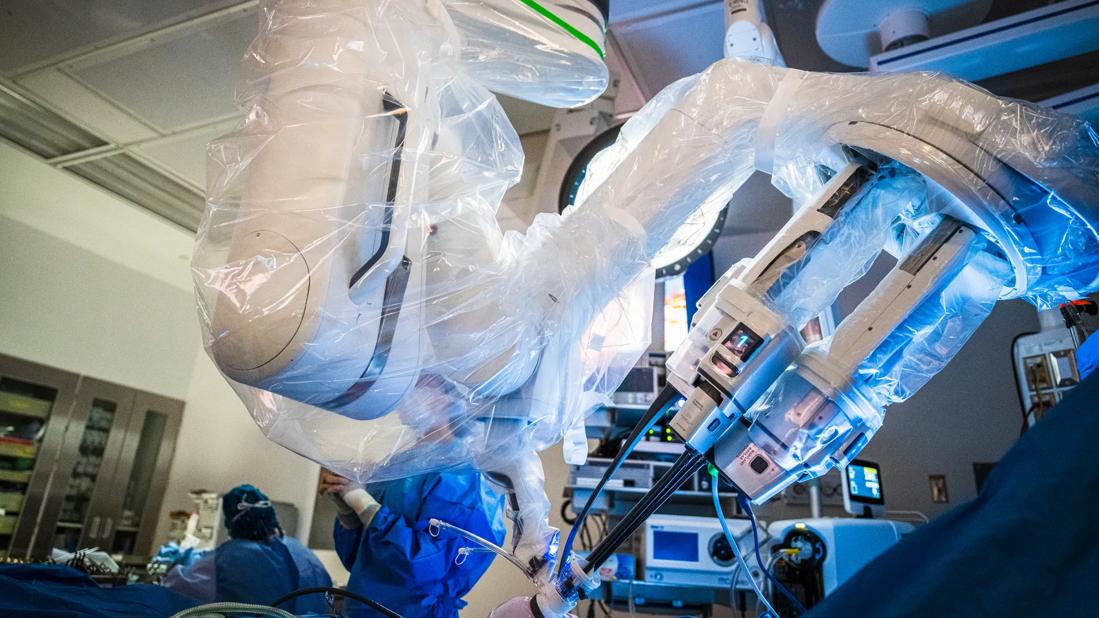Early experiences and outcomes on the brink of 200 cases

Cleveland Clinic was the first U.S. medical center to begin using the single-port (SP) robot for urologic procedures in late 2018. Since then, experts at Glickman Urological & Kidney Institute continue to fine-tune their surgical technique.
Advertisement
Cleveland Clinic is a non-profit academic medical center. Advertising on our site helps support our mission. We do not endorse non-Cleveland Clinic products or services. Policy
Jihad Kaouk, MD, Director of the Center for Robotic and Image-Guided Surgery and the Zegarac-Pollock Endowed Chair in Laparoscopic and Robotic Surgery, elaborates on the benefits of performing the prostate cancer surgery extraperitoneally, noting, “By avoiding the sac in which the bowel is contained, the surgery is compartmentalized, limited to the area just around the prostate. The gas bubble in which the robotic arms work expands the peritoneum, pushing the bowel out of the way, allowing better visibility.”
In addition, the SP robotic technique avoids the steep Trendelenburg positioning, which improves recovery time and mitigates potential risks associated with such positioning, including optical nerve edema, congestion and respiratory problems during surgery. Patients undergoing the procedure with SP robotic prostatectomy lie flat. They experience a single incision, versus the five incisions required in a patient’s abdomen in previous robotic radical prostatectomy procedures.
These key differences in the SP robotic technique allow for easier extraperitoneal access, which helps avoid intra-abdominal adhesions. The technique also avoids assistant ports. Improved recovery aspects of the SP robotic procedure include decreased opioid use (70 percent of patients do not use opioids), an increase in same-day discharges with a median hospital stay of 4.8 hours, no drains and no reported ileus, with good functional and oncologic outcomes. Nearly 90 percent of patients were continent at six months.
Advertisement
The team shared their experience using the SP robot to perform extraperitoneal radical prostatectomy in 185 cases at the American Urological Association 2021 Annual Meeting.
Video content: This video is available to watch online.
View video online (https://www.youtube.com/embed/yvWDv6CBI9U?feature=oembed)
SP Extraperitoneal Radical Prostatectomy: Technique and Lessons on the Brink of 200 Cases (Graphic)
Advertisement
Advertisement

Radiation therapy helped shrink hand nodules and improve functionality

Standard of care is linked to better outcomes, but disease recurrence and other risk factors often drive alternative approaches

Phase 1 study demonstrates immune response in three quarters of patients with triple-negative breast cancer

Multidisciplinary teams bring pathological and clinical expertise

Genetic variants exist irrespective of family history or other contributing factors

Study shows significantly reduced risk of mortality and disease complications in patients receiving GLP-1 agonists

Structured interventions enhance sleep, safety and caregiver resiliency in high-acuity units

Addressing rare disease and challenging treatment course in an active young patient